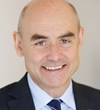With plans underway to extend the cosmetic surgery certification scheme to all surgeons performing cosmetic surgery, we share the views of the RCS, BAAPS and BAPRAS.
The Royal College of Surgeons (RCS) along with its partners in the Surgical Specialty Associations has been reviewing the Cosmetic Surgery Certification Scheme with a view to extending its reach to all surgeons undertaking cosmetic surgery.
The Cosmetic Surgery Certification Scheme (https://www.rcseng.ac.uk/standards-and-research/standards-and-guidance/service-standards/cosmetic-surgery/certification/) was launched in January 2017 following a three-year period of development with multiple professional stakeholders, patients, regulators and in depth patient and market research. It was commissioned by the Department of Health in England in response to the Keogh Review and with a view to improving the regulatory framework, patient experience and ultimately patient safety in the area of cosmetic surgery.
The current regulatory system provides very few, if any, limitations around specialist training and experience for those who want to carry out cosmetic procedures. The Scheme was set up to provide accreditation of competencies in defined areas of cosmetic surgery, encompassing not only clinical skills but also crucial professional behaviours. The Scheme is voluntary and surgeons may certify in as many anatomical areas as they wish and where they meet the necessary criteria. For UK trained surgeons on the General Medical Council’s (GMC’s) Specialist Register, working in managed clinical environments, the evidence requirements are based around those already collected for revalidation.
We know that properly trained and experienced surgical professionals offer patients the best chance of an excellent outcome, but we also know that there is poor, unprofessional practice and we want to help patients make the right choices by using the Scheme to improve standards across the industry. In the absence of regulation, the Scheme sets out the standards we expect of those practising cosmetic surgery in the UK. The standards were developed in consultation with the GMC and earlier this year the Scheme was approved, alongside four other discrete areas of practice, as one of the early adopters of the GMC-regulated credentials, aimed to support better and safer patient care across the UK. The Certification Scheme will therefore form the basis of a GMC credential in cosmetic surgery expected to be established over the next year.
Despite a detailed and considered development process, involving representatives from all the Surgical Specialty Associations including the then presidents of British Association of Aesthetic Plastic Surgeons (BAAPS) and British Association of Plastic, Reconstructive & Aesthetic Surgeons (BAPRAS), the uptake of certification has been limited and this year we have been carrying out a comprehensive review to understand the reasons for this and to address them.
We have found that the process for applying is complex and that the online platform for the Scheme could be much more user-friendly and less time-consuming. We are in the process of a substantial overhaul of the application process, based on the feedback we have received. In addition, we aim to simplify, streamline and diversify several of the evidence requirements whilst not reducing the standards upon which the Scheme is based. We want to place increased emphasis on the psychological assessment of cosmetic patients to support the early identification of those who may be vulnerable or have unrealistic expectations, before they consent to treatment.
Part of the streamlining of certification evidence will be to provide additional routes to certification that acknowledge more clearly the specialist training and experience of plastic surgeons. As part of the establishment of a UK-wide credential, and at the encouragement of our partners in the surgical specialty associations, we are also in the process of establishing an intercollegiate, cross specialty governance structure to oversee the operation, quality assurance and development of the Scheme and the subsequent credential. Following consultation with the surgical specialty associations, we hope to have an updated system in place within the next year.
However, we are aware of a more fundamental reluctance amongst surgeons who are already working in a professional way and have been doing so for some time to submit to a further process that they may see as of little value to their own practice. Patients’ knowledge and familiarity with the Scheme will be essential to its success. Because of this, one of the key priorities we have set for the coming year is to put in place and implement a comprehensive, long-term strategy of further engagement with patients and patient groups which includes the promotion of the Scheme and its benefits.
We wish to use the Scheme to promote good practice and start to embed some of the elements of practice that we see in the NHS within private sector settings. With the help of our colleagues at BAAPS and BAPRAS, we will be looking at how we can encourage aspects of NHS clinical governance through the Scheme itself, in terms of the type of evidence we will ask applicants to provide and within the masterclass which forms a mandatory part of the certification process. Cosmetic surgery in the independent sector is growing; it is important, therefore, with the expansion of options, developments in technology and increase in demand, that the safety and quality of cosmetic surgery is not left behind.
Comments on the RCS Certification Scheme
“The first step is to put minor objections aside”
 Given the variable standards that exist in the cosmetic surgery sector, there is clearly a need to differentiate providers. It is also clear that the majority of procedures are currently not carried out by appropriately trained surgeons.
Given the variable standards that exist in the cosmetic surgery sector, there is clearly a need to differentiate providers. It is also clear that the majority of procedures are currently not carried out by appropriately trained surgeons.
Price-sensitive and often vulnerable patients are prone to being preyed upon by unscrupulous providers, which can lead to patient harm and tarnishes the entire sector. Talking to my colleagues around the world, the lack of regulation in the UK and the high number of ‘cosmetic clinics’ makes this one of the worst jurisdictions for such activity.
The BAAPS is a charitable organisation aimed at improving patient safety and it is therefore our duty to help correct the problem. The difficulty is how do we achieve this without definitive legislation from a paralysed Government in self-destruct over Brexit?
As an association, we are fully behind the principles of the certification and credentialing system, although as yet very few of our members have completed the scheme. One of the main obstacles has been that the majority of our members already practise to a very high standard and don’t see the benefit of what, to date, has been a rather cumbersome system. In contrast to many specialty surgeons carrying out cosmetic surgery, a plastic surgeon with a Certificate of Completion of Training (CCT) has already been trained and assessed in cosmetic surgery.
The RCS certification system has therefore predominantly appealed to non-plastic surgeons in need of a ‘badge’ or credential to legitimise their practice. It is important to recognise that a breast surgeon for example can ‘set up shop’ doing breast augmentation having undertaken no training whatsoever in the cosmetic sector. It is therefore no surprise that in the first year of the scheme, the predominant applicants were non-plastic surgeons. Hence, many plastics surgeons have seen this as a shortcut to cosmetic practice for untrained surgeons and feel that their own participation will legitimise these less well qualified competitors.
This year Mark Henley (on behalf of BAPRAS) and I (on behalf of BAAPS) have worked hard with the RCS to make the scheme more appealing to plastic surgeons. The application process in the new 2020 iteration should be much more straightforward, constructive and less expensive. Above all, we must differentiate trained surgeons of all specialities from non-surgeons, not differentiate between trained surgeons from different specialities. However, we also need to acknowledge the training and experience that plastic surgeons have already gained in cosmetic surgery.
By making the submission process similar to appraisal, already including a review of a surgeon’s cosmetic practice, by amalgamating the anatomical areas for plastic surgeons and by reducing the overall cost, this should make it more appealing. The masterclass will hopefully continue to be very helpful, particularly in areas of professional behaviour and psychological assessment.
Once this becomes standard for all trained surgeons working in cosmetic surgery then we can apply pressure to the Care Quality Commission (CQC), hospitals and clinics to prevent non-surgeons working in this area. The first step is to put minor objections aside and support the scheme. That is why I will be asking all BAAPS member surgeons to register for the new scheme in 2020, so that we can make this a great success and improve standards across the entire sector.
Paul Harris, President, BAAPS 2018-2020
“We are creating a collaborative cosmetic surgical community”
 The British Association of Plastic, Reconstructive and Aesthetic Surgeons (BAPRAS) is the voice of plastic surgery in the UK, advancing education in all aspects of the specialty and promoting understanding of contemporary practice.
The British Association of Plastic, Reconstructive and Aesthetic Surgeons (BAPRAS) is the voice of plastic surgery in the UK, advancing education in all aspects of the specialty and promoting understanding of contemporary practice.
Founded in 1946 in the aftermath of World War II, as the British Association of Plastic Surgeons, the Association had the objectives of relieving sickness and protecting and preserving public health by the promotion and development of plastic surgery. The aim of the Association was to advance education in all aspects of plastic surgery.
Today, these objectives remain and apply equally to the practice of cosmetic surgery as to any other area of plastic and reconstructive surgery. BAPRAS enjoys working in close collaboration with the BAAPS to contribute to the BAAPS commitments to ensuring the right information about cosmetic surgery is easily accessible by patients, whilst also driving forward the ongoing education and training of those professionals carrying out aesthetic plastic surgery to benefit the public.
Cosmetic surgery is unusual in that, unlike other areas of surgical practice and particularly the NHS, where working as a member of a surgical team is now the norm and the needs of the patient are paramount, cosmetic surgeons are often isolated practitioners and may be subject to commercial imperatives. Although the technical competencies of a surgeon can be an issue, a far more significant problem is whether a proposed procedure is in the best physical and psychological interests of the patient and whether the surgeon is able to resist all the patient, personal, professional and pecuniary pressures to operate.
Paul Harris as President of BAAPS and I as President of BAPRAS are delighted to report that there is now an unprecedented degree of collaboration between the presidents of all of the involved surgical specialties and all the UK Royal Colleges of Surgeons and other institutions with a shared focus on ensuring that the best interests of patients are the absolute priority in cosmetic surgery.
Together we have worked hard to develop the certification scheme from a single College initiative and are now well on the way to a scheme involving all four surgical colleges which is allied to mainstream surgical training and practice and which we believe will be attractive and of practical and professional benefit to all surgeons engaging in cosmetic surgical practice.
I believe that together we are creating a collaborative cosmetic surgical community which will be of benefit to all concerned and hope that this will ultimately contribute to the GMC credentialing process and most importantly protect patients contemplating cosmetic surgery.
Mark Henley, President, BAPRAS 2019-2021
COMMENTS ARE WELCOME





